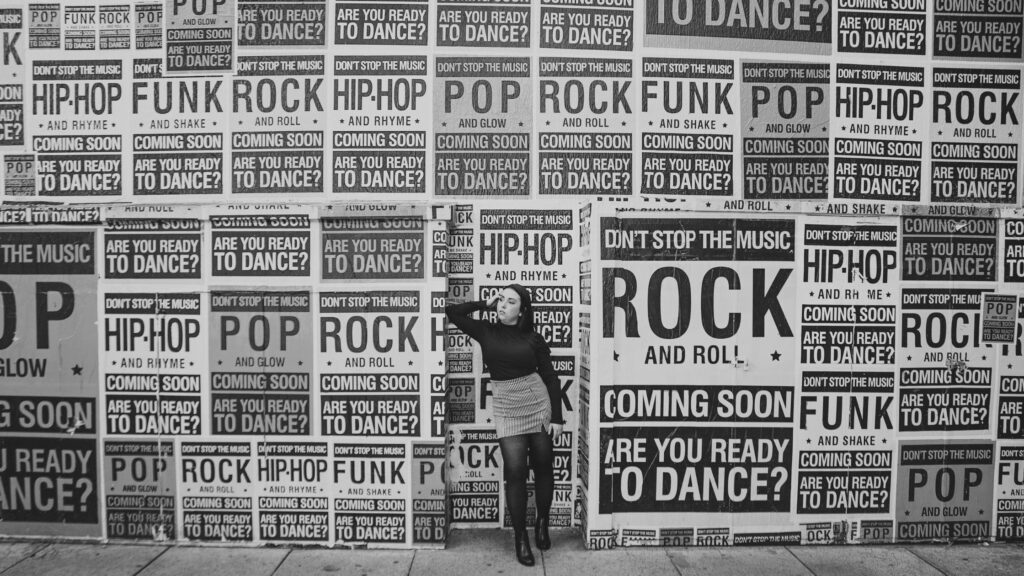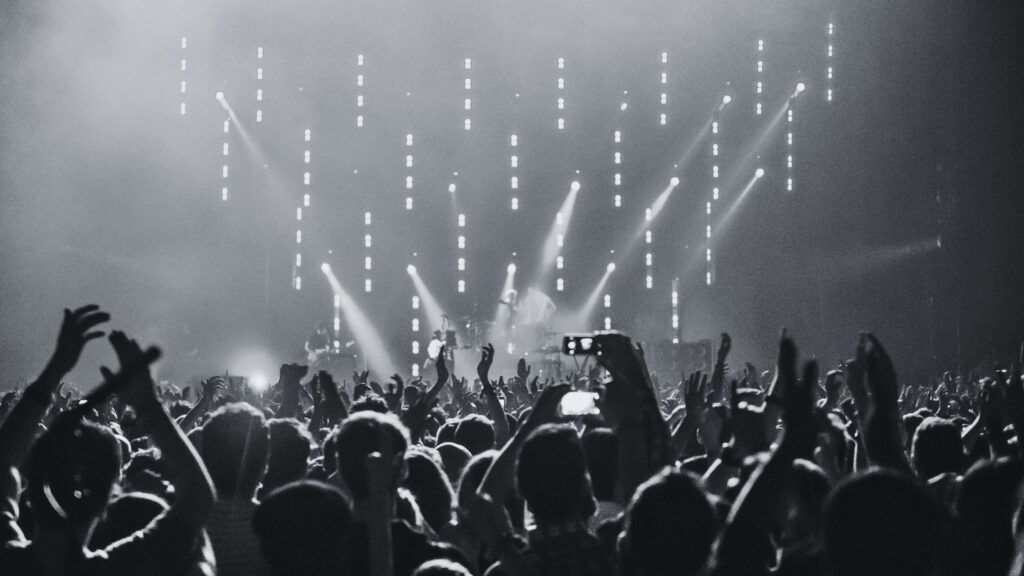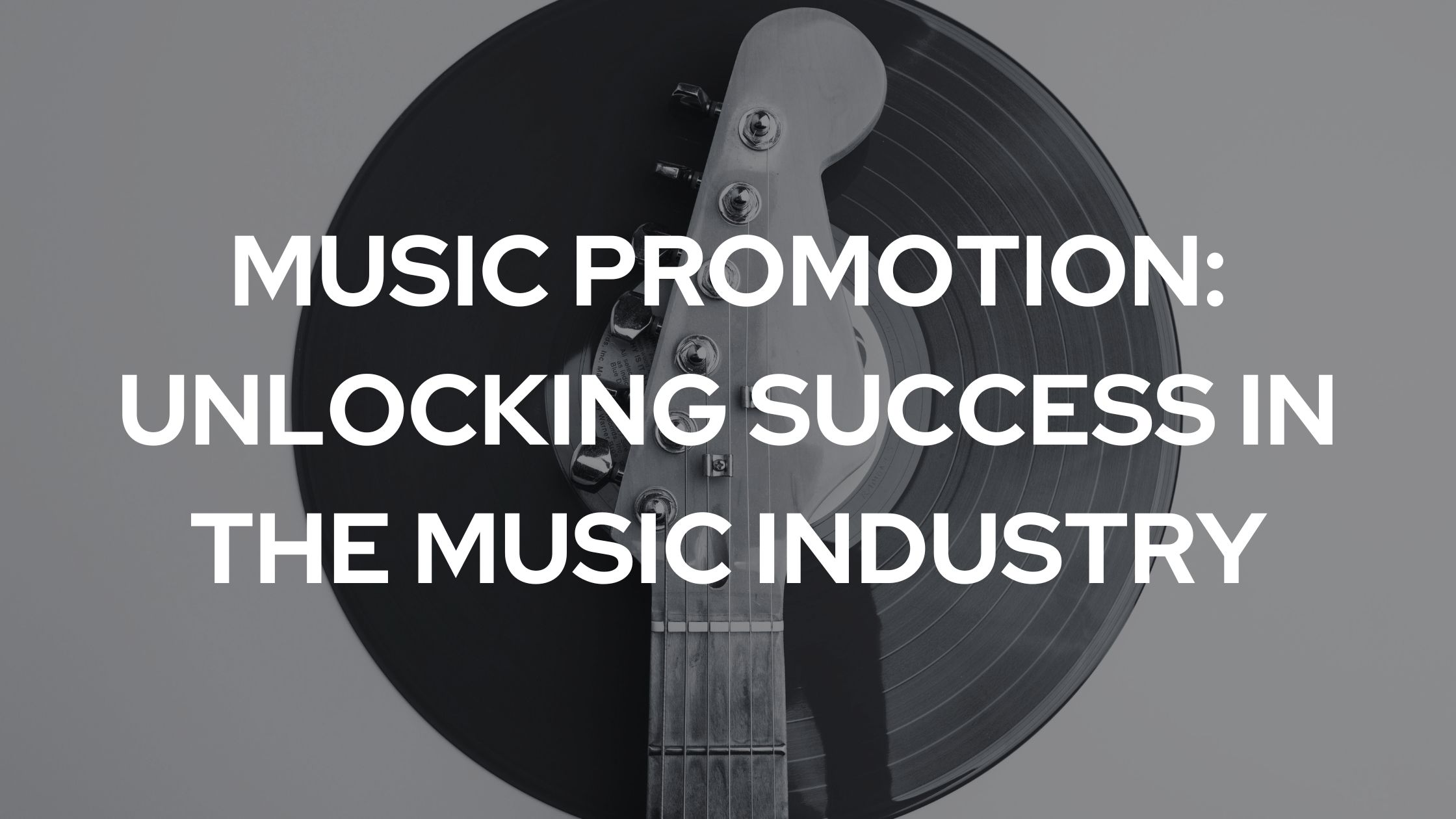Table of Contents
- Importance of Music Promotion
- Successful Music Marketing Strategies
- Measure and Analyze Results
- A wrap 🌯
In today’s fast-paced music industry, talent alone is not enough to guarantee success. With thousands of artists vying for attention, effective music promotion has become essential for standing out in the crowd. This article looks at different ways musicians can promote their music effectively. It helps new and established artists connect with their audience.
Importance of Music Promotion
The music industry is more crowded than ever before, with new artists emerging every day. In such a competitive landscape, it’s crucial to find ways to distinguish oneself from the masses. Artists get noticed and connect with their fans on a deeper level by effectively promoting music.
To succeed in music, artists need to build a loyal fan base and connect with their audience. This means they should focus on creating genuine connections with their fans.
Building a loyal fan base is essential for success in the music industry. Artists should prioritize forming relationships with their audience.
Successful Music Marketing Strategies
Social Media Promotion
Social media platforms like Instagram, Facebook, and Twitter have revolutionized the way artists promote their music. These platforms offer invaluable opportunities for artists to connect with their audience, share their music, and build a strong brand identity.
One of the key benefits of using social media for music promotion is the ability to reach a larger audience. By creating eye-catching content and utilizing popular hashtags, artists can increase their visibility and attract new fans. Additionally, interacting with followers through comments, likes, and direct messages can help artists build a loyal fan base and establish a personal connection with their audience.
Furthermore, social media platforms provide artists with a platform to showcase their creativity and unique style. Artists can use features like Instagram Stories, Facebook Live, and Twitter polls to engage with fans in a more interactive and personal way. This not only helps artists build a stronger relationship with their audience but also allows them to showcase their personality and authenticity.
Overall, social media platforms have become essential tools for music promotion in today’s digital age. By leveraging these platforms effectively, artists can expand their reach, engage with fans, and ultimately grow their music career.

Influencer and Blogger Collaborations
Collaborating with influencers and bloggers in the music niche can be a powerful strategy for artists looking to expand their reach and connect with new audiences. By partnering with individuals who have a strong following and influence in the industry, artists can tap into a ready-made fan base and gain credibility in the eyes of their followers.
One of the key benefits of working with influencers is the ability to reach a larger and more diverse audience. Influencers have built a loyal following of music enthusiasts who trust their recommendations and opinions. By aligning with these influencers, artists can introduce their music to a whole new group of potential fans who may not have discovered them otherwise.
In addition to reaching new audiences, collaborating with influencers can also help artists build credibility and establish themselves as a reputable figure in the music industry. When an influencer promotes an artist’s music to their followers, it serves as a form of endorsement that can boost the artist’s reputation and credibility.
To incentivize influencers to promote their music, artists can offer them exclusive content or sneak peeks that are not available to the public. This can create a sense of exclusivity and excitement among the influencer’s followers, encouraging them to check out the artist’s music and potentially become fans.
Overall, collaborating with influencers and bloggers in the music niche can be a valuable strategy for artists looking to expand their reach, connect with new audiences, and build credibility in the industry. By leveraging the influence and reach of these individuals, artists can take their music to new heights and achieve greater success in their careers.
Email Marketing Campaigns
Building an email list is a powerful tool for music promotion. Artists can use email marketing campaigns to keep fans updated on new releases, upcoming gigs, and exclusive content.
Artists can get fans to sign up for their mailing list by offering incentives. These incentives can include free downloads or discounts for subscribers. This helps fans stay engaged with the artist’s music.
Music Streaming Platforms
Improving profiles on music streaming sites like Spotify, Apple Music, and SoundCloud is important for reaching more listeners. Artists can increase their visibility by getting their music on popular playlists. They can also collaborate with other artists to reach a wider audience.
Additionally, interacting with fans on platforms like Spotify for Artists can help them grow their fan base. By making their music easily accessible on these platforms, artists can attract new listeners and grow their fan base.

Live Events and Gigs
Hosting concerts and shows is a great way to share music and engage with fans on a personal level. Live events, such as concerts or festivals, allow artists to showcase their talent and interact with their fans face-to-face. These events allow artists to show their talents and connect with their audience in a special way.
By performing live, artists can engage with their fans in a more intimate and authentic way. Artists can work with venues, event organizers, and sponsors to create memorable experiences for fans.
Measure and Analyze Results
Tracking the performance of music promotion efforts is crucial for artists to understand how well their marketing strategies are working and to make informed decisions about future campaigns. By monitoring website traffic, artists can see how many people are visiting their site, where they are coming from, and which pages they are spending the most time on. This information can help artists identify which promotional tactics are driving the most traffic and which may need to be adjusted.
Engagement levels are another important metric to track, as they can provide insight into how well fans are interacting with the artist’s content. By monitoring metrics such as likes, comments, shares, and click-through rates, artists can gauge the level of interest and enthusiasm their audience has for their music. This information can help artists tailor their promotional efforts to better engage their fans and build a stronger connection with them.
Audience demographics are also key to understanding who is listening to the artist’s music and where they are located. By using tools like Google Analytics and social media insights, artists can gather data on the age, gender, location, and interests of their audience. This information can help artists target their promotions more effectively, reaching the right audience with the right message at the right time.
Overall, tracking the performance of music promotion efforts is essential for artists to measure their success, identify areas for improvement, and make data-driven decisions about their marketing strategies. By analyzing website traffic, engagement levels, and audience demographics, artists can gain valuable insights that can help them grow their fan base, increase their reach, and ultimately achieve their goals in the music industry. Artists can study data to see trends, find ways to improve, and change strategies to have a bigger impact.
A wrap 🌯
In an increasingly competitive music industry, effective music promotion is key to success. Artists can use social media to increase their visibility and connect with their audience. They can also collaborate with influencers, send email campaigns, optimize music streaming, and host live events.
Artists can achieve long-term success in music by experimenting, analyzing results, and adapting to industry changes. This leads to fulfillment in their musical careers.


